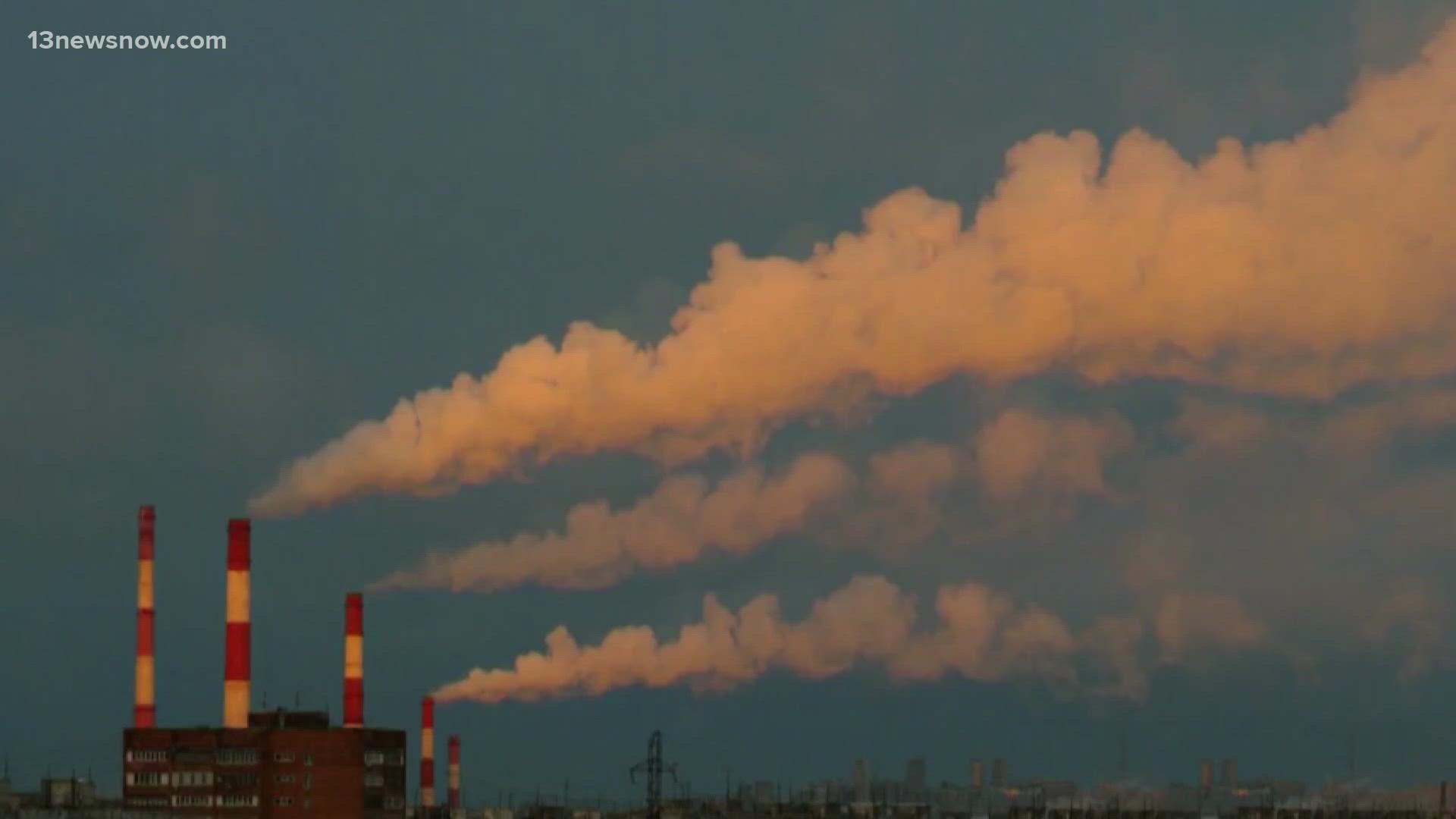NORFOLK, Va. — Starting this week, Virginians can weigh in on the state’s future in a multi-state initiative to reduce carbon pollution.
For 60 days, public comment is open on whether the Commonwealth should stay in the Regional Greenhouse Gas Initiative, or RGGI.
The agreement caps carbon dioxide emissions from power plants, but companies can pay to go over the cap. That money goes back to the states.
At last count, Virginia has received more than $523 million from RGGI, according to data provided by the initiative.
By Virginia state law, half of the funding, or roughly $260 million, goes toward improving energy efficiency in low-income areas. Forty-five percent – nearly 235 million – supports communities that struggle with flooding.
Charles Brown of the Chesapeake Climate Action Network doesn’t want the program to go away, saying emissions are down and there’s more money for programs.
“The program is doing exactly what it was designed to do,” said Brown. “This is something that is urgent. We should not be going backwards.”
Virginia joined the 11-state partnership in 2020, under former Gov. Ralph Northam.
Gov. Glenn Youngkin and his administration want to pull out of it, calling it a "regressive tax" on Virginians. The Republican governor has been adamant about the move since coming into office.
Opponents argue power companies can pass that extra cost on to ratepayers, and some argue there’s no proof that RGGI is the reason for lower emissions.
Senate Democrats recently blocked a bill that would take the Commonwealth out of the program. The Youngkin administration is now focusing efforts on repealing a key regulation in the law that allows the state to participate in RGGI. In December, the Virginia Air Pollution Control board agreed with the governor and moved it to public comment.
Already, more than 400 people have weighed in on the move with mixed reactions, so far.
“Senate Democrats refused to offer immediate relief to Virginians from this regressive tax which does not do anything to incentivize the reduction of pollution,” said Youngkin spokeswoman Macaulay Porter. “Regardless, Virginians will see a lower energy bill in due time because we are withdrawing from RGGI through a regulatory process.”
If you would like to weigh in, public comments will be accepted here through March 31, 2023.
For a complete breakdown of the RGGI initiative and possible next steps by state leaders, click here.

